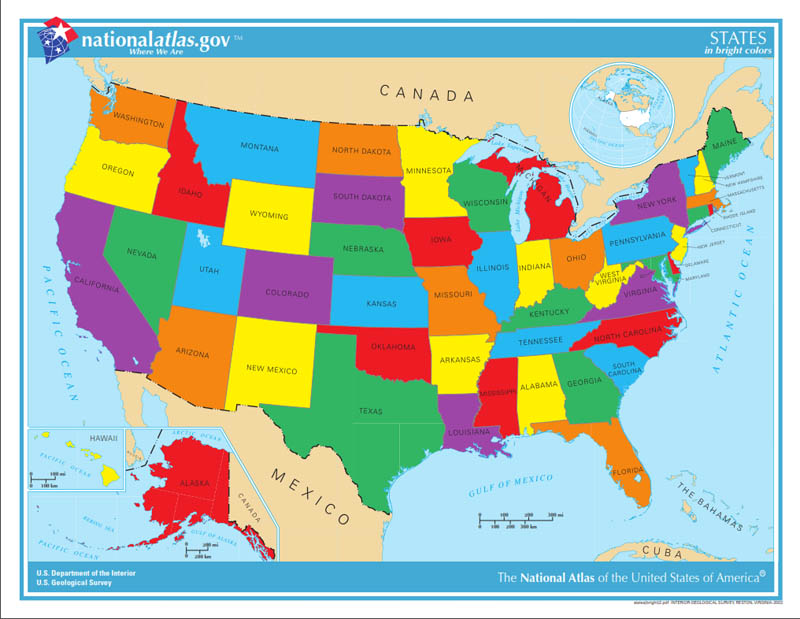States
Another White House Assault on Federalism
Trump’s Executive Order about rebuilding in LA is a huge federal power grab.
esterday, Trump issued an executive order that attempts to eliminate the need for building permits in the LA burn area. The argument is that the permitting process this slows down the rebuilding that FEMA grants are supposed to assist. he idea seems to be that whenever Congress choses to subsidize an activity, it authorizes agencies to eliminate all state regulations that might be barriers. Supreme Court opinions are full of admonitions against just this kind of assault on state authority, especially in fields like building permits that are a traditional domain of state and local government. And no, this isn’t an area where the President can rely on the Supreme Court’s conservatives. As much as they seem to like presidential authority, the conservative Justices have also shown a strong attachment to federalism.
Abolishing ICE has Environmental Connections
The Drain is a weekly roundup of environmental and climate news from Legal Planet.
Does your heart hurt from watching agents of the U.S. government execute a law-abiding citizen in the street while he is helping others try to stay safe during an authoritarian takeover of an American city? If you work on environmental and climate issues, you probably have felt this rage over what’s happening but also thought …
Continue reading “Abolishing ICE has Environmental Connections”
CONTINUE READINGMilestones in State Climate Policy
The first efforts to clean up the grid date back forty years, but state climate policy really got moving at the turn of the century.
The federal government’s interventions in climate policy have been erratic, driven by political polarization and alternating control of the White House. In contrast, state governments have engaged in steady campaigns to reduce carbon emissions. Some people seem to think this has been a recent innovation, but it has now been ongoing for a generation. Here are some the key milestone along the way, closing with Trump’s pledge to bulldoze state policies that don’t fall in line with his priorities.
CONTINUE READINGOne Year of Energy Emergencies
The Drain is a weekly roundup of environmental and climate news from Legal Planet.
This past Tuesday — on the one-year anniversary of Donald Trump taking office and immediately declaring a national energy emergency — the new governor of New Jersey took office and immediately declared a state energy emergency. But these two approaches to executive action on energy couldn’t be more different and the results will help define …
Continue reading “One Year of Energy Emergencies”
CONTINUE READINGA Procedural Snarl in the Oil Patch
Can oil companies use World War II contracts to vault from state to federal court in cases about present-day coastal damage?
As a matter of common sense, however, it’s hard to see why oil production activities that would not otherwise be considered “federal” should change their statute because the producers also happen to own refineries — especially since in some instances it appears that all the oil from one of their fields might be going to a different refinery anyway. But textualist judges aren’t necessarily attended to common sense.
CONTINUE READING2026: The Year Ahead
Here are six big things to watch.
What to watch for environmentally in 2026: court tests of Trump’s power, midterms, China, grid issues, and state energy moves. In 2025, Trump rolled out new initiatives at a dizzying rate. That story, in one form or another, dominated the news. This year, much of the news will again be about Trump, but he will have less control of the narrative. Legal and political responses to Trump will play a greater role, as will economic developments. Trump’s anti-environmental crusade could run into strong headwinds.
CONTINUE READINGThat Was the Year That Was
2025 had a lot of bad environmental news, but also a few rays of hope.
2025 has been a dark time for Americanswho care about the environment. Rather than being a repeat of his first term, which had been bad enough environmentally, Trump’s second term has been a tsunami of bad news. Besides some outright rollbacks, Trump has done his best to purge the government of programs and people implementing environmental law. Much of that has been illegal but effective anyway. The demolition of the East Wing will be remembered as a defining moment, the perfect metaphor for an Administration that has religiously embraced the motto, “move fast and break things.”
CONTINUE READINGFederalism, AI, and the Environment
Trump’s efforts to overturn state laws are part of his effort to consolidate power and suppress opposition.
State authority isn’t unlimited, but current legal doctrines give it broad scope. So, apparently, does national politics, given that Congress recently rejected a proposal to preempt state AI laws and has never seriously considered preempting state climate laws.
As we all know, Congress has found it extraordinarily difficult to enact legislation on major issues. The executive branch, under the Supreme Court’s “major questions doctrine,” lacks the power to fill the gap. That leaves only the states to save us from paralysis when major new issues arise. That may not be ideal, but it’s better than nothing.
Making the Most of Data Centers
Data centers are driving energy demand at unbelievable scale. Regulators should use that to build infrastructure we desperately need.
If you’d asked me three years ago, I would never have guessed energy bills would be a salient political issue in 2025, let alone one that politicians anchor their entire campaign around. But of course, the cost of energy is quite different today than it was a few years ago. Electricity prices have increased faster than (already-high) inflation since 2022, leaving ratepayers on the hook for ever steeper …
Continue reading “Making the Most of Data Centers”
CONTINUE READINGHow California (And Other States) Can Drive Demand for Clean Trucks
CLEE and the Emmett Institute release new report today and will hold Jan. 13 webinar with Energy Commissioner Nancy Skinner keynote.
This post is co-authored by CLEE fellow Marie Grimm. California’s policies to phase out polluting diesel trucks with zero-emission models took a major hit this year from the federal government. In June 2025, Congress voted to overturn federal permission for California’s zero-emission truck mandate (although this vote is now subject to litigation). In July, Congress …
Continue reading “How California (And Other States) Can Drive Demand for Clean Trucks”
CONTINUE READING













